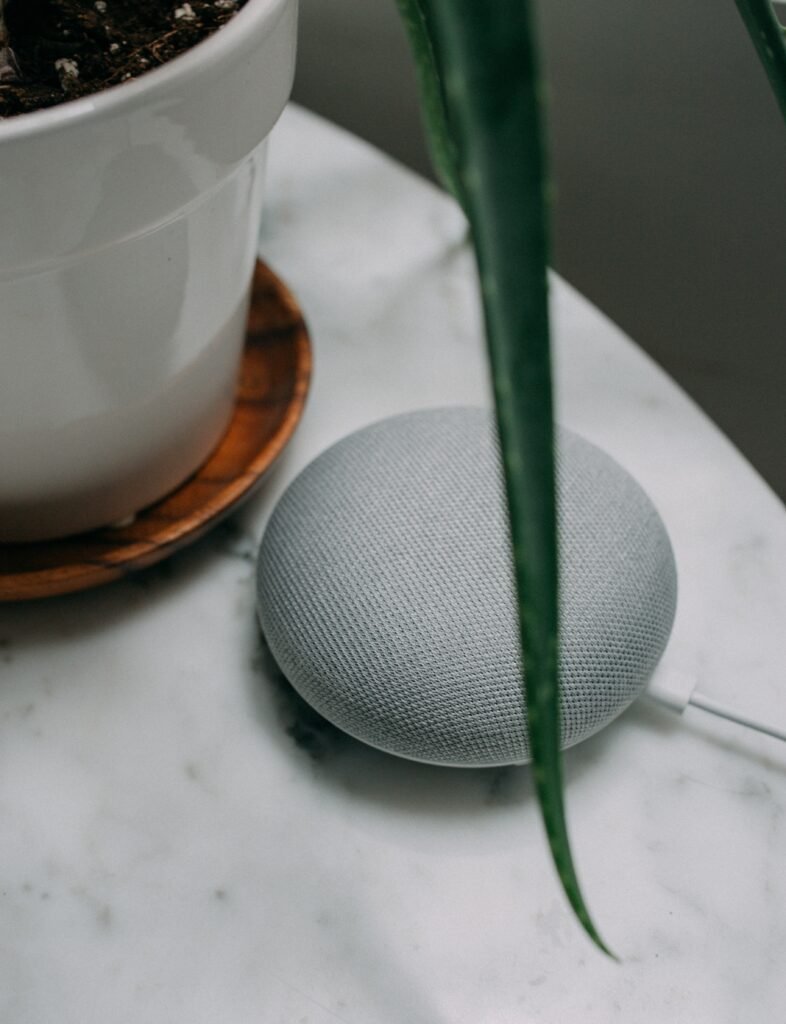Artificial Intelligence (AI) in healthcare is a rapidly expanding field that utilizes advanced technologies to revolutionize the way medical professionals diagnose, treat, and manage patient care. AI refers to machines and computer systems that are programmed to simulate human intelligence, enabling them to analyze vast amounts of data, recognize patterns, and make informed decisions. In the realm of healthcare, AI has the potential to enhance accuracy and efficiency, improve patient outcomes, and streamline operations. From assisting in early disease detection to personalized treatment plans, AI is poised to transform the healthcare landscape, ushering in a new era of innovation and possibilities.
Overview of Artificial Intelligence in Healthcare
Artificial intelligence (AI) refers to the simulation of human intelligence in machines that are programmed to think and learn like humans. In the context of healthcare, AI has emerged as a powerful tool that can revolutionize the way we diagnose, treat, and prevent diseases. It encompasses a wide range of technologies, including machine learning, natural language processing, computer vision, and robotics. The potential applications of AI in healthcare are vast, from improving the accuracy and efficiency of diagnosis to enhancing patient care and reducing costs.
Definition of Artificial Intelligence
Artificial intelligence can be defined as the ability of machines to perform tasks that would typically require human intelligence. This includes tasks such as understanding natural language, recognizing patterns, making decisions, and learning from experience. AI algorithms can process and analyze large amounts of data to uncover meaningful insights and assist healthcare providers in making informed decisions. By leveraging AI, healthcare systems can improve patient outcomes, streamline processes, and provide personalized care.

Importance of Artificial Intelligence in Healthcare
The importance of AI in healthcare cannot be overstated. With the rapid advancements in technology and the ever-increasing complexity of healthcare data, AI has become crucial in managing and making sense of the vast amount of information available. AI algorithms can sift through mountains of patient data, electronic health records, medical literature, and even genomic data to identify patterns and generate insights that would be difficult for human clinicians to uncover. This has the potential to transform healthcare delivery, enabling earlier and more accurate diagnoses, personalized treatment plans, and improved patient outcomes.
Evolution of Artificial Intelligence in Healthcare
The evolution of AI in healthcare has been remarkable. Over the past few decades, AI has evolved from simple rule-based systems to more sophisticated machine learning algorithms capable of learning from large datasets. Early applications of AI in healthcare focused on tasks such as diagnosis and treatment planning, where algorithms were developed to mimic the decision-making processes of human experts. However, with recent advancements in deep learning and neural networks, AI has become even more powerful, enabling machines to recognize patterns, process natural language, and make predictions with unprecedented accuracy.

Applications of Artificial Intelligence in Healthcare
Diagnosis and Treatment
One of the most promising applications of AI in healthcare is in the field of diagnosis and treatment. AI algorithms can analyze patient data, including symptoms, medical history, laboratory results, and imaging scans, to help healthcare providers make more accurate diagnoses. By comparing a patient’s data to vast databases of medical knowledge, AI can identify relevant patterns and provide recommendations for further testing or treatment options. This not only improves the accuracy of diagnoses but also enables faster and more personalized treatment plans.
Drug Discovery and Development
AI is also revolutionizing the field of drug discovery and development. Traditional drug discovery is a time-consuming and costly process, often taking years or even decades to bring a new drug to market. AI algorithms can accelerate this process by analyzing vast amounts of data to identify potential drug candidates and predict their efficacy and safety. By simulating drug interactions and predicting their effects on the human body, AI can help researchers prioritize and design experiments, ultimately leading to faster and more targeted drug development.
Patient Monitoring
AI has the potential to transform patient monitoring, enabling healthcare providers to remotely monitor patients and detect early signs of deterioration. With the help of wearable devices and sensors, AI algorithms can continuously monitor vital signs, such as heart rate, blood pressure, and oxygen levels, and alert healthcare providers to any abnormalities. This early detection of changes in a patient’s condition can help prevent complications, reduce hospital readmissions, and improve overall patient outcomes.
Precision Medicine
Precision medicine aims to provide personalized treatment plans tailored to an individual’s unique characteristics, including genetic makeup, lifestyle factors, and environmental exposures. AI plays a crucial role in enabling precision medicine by analyzing vast amounts of patient data and identifying patterns that can help predict treatment responses and outcomes. By integrating genomic data, electronic health records, and other relevant information, AI algorithms can assist healthcare providers in developing personalized treatment plans that optimize patient outcomes.
Medical Imaging and Radiology
AI has demonstrated great potential in the field of medical imaging and radiology. Image recognition algorithms powered by deep learning can analyze medical images, such as X-rays, CT scans, and MRI scans, to assist radiologists in identifying abnormalities and making more accurate diagnoses. This can help reduce the risk of human error and improve the speed and accuracy of diagnosis. AI can also be used to detect early signs of diseases, such as cancer, by analyzing subtle changes in medical images that might otherwise go unnoticed.
Virtual Assistants and Chatbots
Virtual assistants and chatbots are increasingly being used in healthcare to provide personalized and timely information to patients and healthcare providers. AI-powered virtual assistants can answer common healthcare questions, provide medication reminders, schedule appointments, and even triage patients based on their symptoms. This can help alleviate the burden on healthcare providers and improve patient experience by providing quick and accurate responses to their inquiries.
Healthcare Administration
AI can also streamline healthcare administration by automating routine tasks and reducing paperwork. AI-powered systems can assist with appointment scheduling, billing and coding, and even data entry. By automating these tasks, healthcare providers can free up valuable time and resources, allowing them to focus more on patient care. Additionally, AI can analyze administrative data to identify areas where efficiency can be improved, leading to cost savings and better resource allocation.
Benefits of Artificial Intelligence in Healthcare
Improved Accuracy and Efficiency
One of the significant benefits of AI in healthcare is the improvement in accuracy and efficiency. AI algorithms can process and analyze vast amounts of data at incredible speeds, reducing the risk of human error and enabling more accurate diagnoses and treatment plans. With AI, healthcare providers can leverage the power of machine learning to identify subtle patterns and trends in data that may not be apparent to human clinicians. This can help optimize patient outcomes by ensuring the most effective treatments are prescribed and reducing the risk of misdiagnosis.
Enhanced Diagnostic Capabilities
AI has the potential to enhance diagnostic capabilities by assisting healthcare providers in making more accurate and timely diagnoses. By analyzing patient data, including symptoms, medical history, and diagnostic test results, AI algorithms can help healthcare providers identify patterns and make informed decisions. This can be particularly useful in complex cases where multiple factors need to be considered, or rare diseases need to be diagnosed. AI-powered diagnostic tools can provide valuable insights and recommendations, improving the accuracy and speed of diagnosis.
24/7 Accessibility
With AI-powered virtual assistants and chatbots, healthcare information and support can be available to patients 24/7. This extends beyond regular healthcare hours, providing patients with immediate access to information and assistance whenever they need it. Virtual assistants and chatbots can answer common healthcare questions, provide medication reminders, and even offer general advice for common ailments. This accessibility not only improves patient experience but can also help alleviate the burden on healthcare providers by reducing unnecessary visits or phone calls.
Personalized Treatment Plans
AI enables the development of personalized treatment plans tailored to an individual’s unique characteristics. By analyzing patient data, including genetic information, medical history, and lifestyle factors, AI algorithms can help healthcare providers identify the most effective treatments for each patient. This personalized approach to medicine can improve patient outcomes by minimizing adverse reactions to medications and optimizing treatment responses. With the help of AI, healthcare providers can move towards a more patient-centric model of care, ensuring the best possible outcomes for every individual.
Reduced Costs
AI has the potential to reduce healthcare costs by optimizing processes and improving efficiency. AI-powered systems can automate routine administrative tasks, reducing the need for manual input and paperwork. This can help save time and resources, allowing healthcare providers to focus on patient care. AI can also help identify areas where resources are being underutilized or where costs can be reduced. By analyzing administrative and clinical data, AI algorithms can optimize resource allocation, reduce unnecessary tests or procedures, and streamline workflow, ultimately leading to cost savings.
Enhanced Patient Experience
AI can enhance the patient experience by providing personalized and timely information and support. Virtual assistants and chatbots can offer immediate responses to patient inquiries, reducing waiting times and the need for unnecessary visits or phone calls. By providing accurate and reliable information, AI-powered systems can also help patients make more informed decisions about their care. Additionally, AI-powered devices and wearables can enable remote patient monitoring, allowing patients to receive continuous care and support from the comfort of their own homes. This enhanced patient experience can improve overall satisfaction and outcomes.

Challenges and Concerns of Artificial Intelligence in Healthcare
Data Privacy and Security
One of the primary challenges of AI in healthcare is ensuring the privacy and security of patient data. As AI algorithms rely on vast amounts of data, including sensitive patient information, there is a risk of data breaches or unauthorized access. It is crucial for healthcare organizations to establish robust security measures, including encryption and access controls, to protect patient privacy. Additionally, strict regulations and ethical guidelines should be in place to govern the collection, storage, and use of patient data to ensure that it is used ethically and responsibly.
Ethical Considerations
The ethical implications of AI in healthcare are complex and multifaceted. AI algorithms make decisions based on patterns and correlations in data, but these algorithms may inadvertently perpetuate biases or discriminate against certain groups of patients. For example, if the training data used to develop an AI algorithm is biased towards a specific population, the algorithm may not perform as accurately for other populations. It is crucial to address these ethical considerations and ensure that AI is used in a fair and unbiased manner to avoid exacerbating existing healthcare disparities.
Lack of Consistent Standards
The lack of consistent standards and guidelines is another challenge in the implementation of AI in healthcare. With the rapid advancements in AI technology, healthcare organizations and regulatory bodies struggle to keep up with the pace of change. This has led to inconsistencies in how AI algorithms are developed, validated, and regulated. It is essential to establish clear and standardized guidelines for the development and deployment of AI in healthcare to ensure patient safety, accuracy, and ethical use.
Integration with Existing Systems
Integrating AI systems with existing healthcare infrastructure and electronic health record (EHR) systems can be a complex and challenging task. Many healthcare organizations still rely on legacy systems and outdated technology that may not be compatible with AI applications. Additionally, interoperability issues between different systems and platforms can hinder the seamless exchange of data and information. It is important to invest in the necessary infrastructure and ensure interoperability to fully leverage the potential of AI in healthcare.
Human Supervision and Control
While AI has the potential to greatly enhance healthcare delivery, it is important to recognize that AI is not a replacement for human clinicians. Human supervision and control are essential to ensure that AI algorithms are used appropriately and to address any potential errors or limitations. Healthcare providers must be adequately trained to understand and interpret the outputs of AI algorithms and to make informed decisions based on these outputs. It is important to strike a balance between the capabilities of AI and the expertise and judgment of human clinicians to ensure the best possible patient care.
Ethical Considerations in Artificial Intelligence in Healthcare
Privacy and Confidentiality
As AI in healthcare relies on vast amounts of patient data, ensuring privacy and confidentiality is of utmost importance. Healthcare organizations must prioritize robust security measures to protect patient data from unauthorized access or breaches. This includes implementing encryption protocols, access controls, and training healthcare providers on best practices for data privacy. Patients must also be informed about how their data is being collected, stored, and used, and given the option to opt-out or provide consent for its use.
Bias and Discrimination
The potential for AI algorithms to perpetuate biases and discriminate against certain groups of patients is a significant ethical concern. AI algorithms learn from historical data, which may contain biases or reflect existing healthcare disparities. This can lead to differential treatment or inaccurate diagnoses for marginalized populations. It is essential to develop and validate AI algorithms using diverse datasets that represent the population they will be applied to. Regular audits and monitoring should also be conducted to identify and address any biases that may arise.
Transparency and Explainability
AI algorithms are often referred to as black boxes, meaning that the decision-making processes of the algorithms are not transparent or readily explainable. This lack of transparency can make it challenging for healthcare providers and patients to understand and trust the decisions made by AI algorithms. To address this, efforts should be made to develop AI algorithms that are transparent and explainable. This includes providing explanations or justifications for the decisions made by AI algorithms and making the underlying processes and data used more transparent.
Accountability and Responsibility
When AI algorithms are involved in healthcare decision-making, questions of accountability and responsibility arise. Who is ultimately responsible if an AI algorithm makes a wrong diagnosis or recommends an inappropriate treatment? Healthcare providers and organizations must take responsibility for the decisions made using AI algorithms and should be held accountable for any errors or adverse outcomes. Clear guidelines and protocols should be developed to determine the roles and responsibilities of healthcare providers and AI algorithms in decision-making processes, ensuring that patient safety and well-being are prioritized.
Future Trends and Developments in Artificial Intelligence in Healthcare
Advancements in Deep Learning and Machine Learning
The future of AI in healthcare lies in advancements in deep learning and machine learning algorithms. These technologies have the potential to further improve the accuracy and efficiency of AI systems by enabling more sophisticated decision-making processes. As computing power continues to increase and algorithms become more optimized, AI will become even more capable of analyzing complex healthcare data and generating meaningful insights.
Integration of Internet of Medical Things (IoMT)
The Internet of Medical Things (IoMT) refers to the network of medical devices, wearables, and sensors connected to the internet. The integration of AI with IoMT has the potential to transform healthcare delivery by enabling real-time monitoring, remote patient management, and personalized interventions. AI algorithms can analyze data from various IoMT devices to identify patterns and trends, helping healthcare providers make informed decisions and interventions.
Blockchain Technology for Secure Data Sharing
Blockchain technology offers a potential solution to the challenges surrounding data privacy and security in healthcare. Blockchain provides a decentralized and secure digital ledger that can be used to store and share healthcare data. By using blockchain, healthcare organizations can ensure that patient data is tamper-proof and can only be accessed by authorized parties. Additionally, blockchain can enable patients to have more control over their data, allowing them to share it securely with healthcare providers or researchers.
Collaborative AI Systems and Human-Machine Partnerships
The future of AI in healthcare may involve more collaborative systems that combine the strengths of both AI algorithms and human clinicians. Rather than replacing human clinicians, AI can work alongside healthcare providers, assisting them in decision-making processes, and enhancing their capabilities. This human-machine partnership can lead to improved patient outcomes, increased efficiency, and better allocation of resources.
Development of AI-based Medical Devices
The development of AI-based medical devices holds great promise for the future of healthcare. AI-powered devices, such as diagnostic tools or robotic surgeons, can enhance accuracy, improve efficiency, and reduce costs. These devices can assist healthcare providers in making more accurate diagnoses, performing complex procedures, and monitoring patient progress. As AI technology continues to advance, we can expect to see more innovative and sophisticated AI-based medical devices that revolutionize healthcare delivery.
Conclusion
Artificial intelligence has the potential to revolutionize healthcare by improving accuracy and efficiency, enhancing diagnostic capabilities, providing personalized treatment plans, and reducing costs. However, it also presents challenges and ethical considerations that must be addressed to ensure its responsible and ethical use. As technology continues to advance and AI algorithms become more sophisticated, the future of AI in healthcare holds great promise. By leveraging the power of AI, healthcare providers can deliver more accurate diagnoses, personalized treatment plans, and enhanced patient care.






